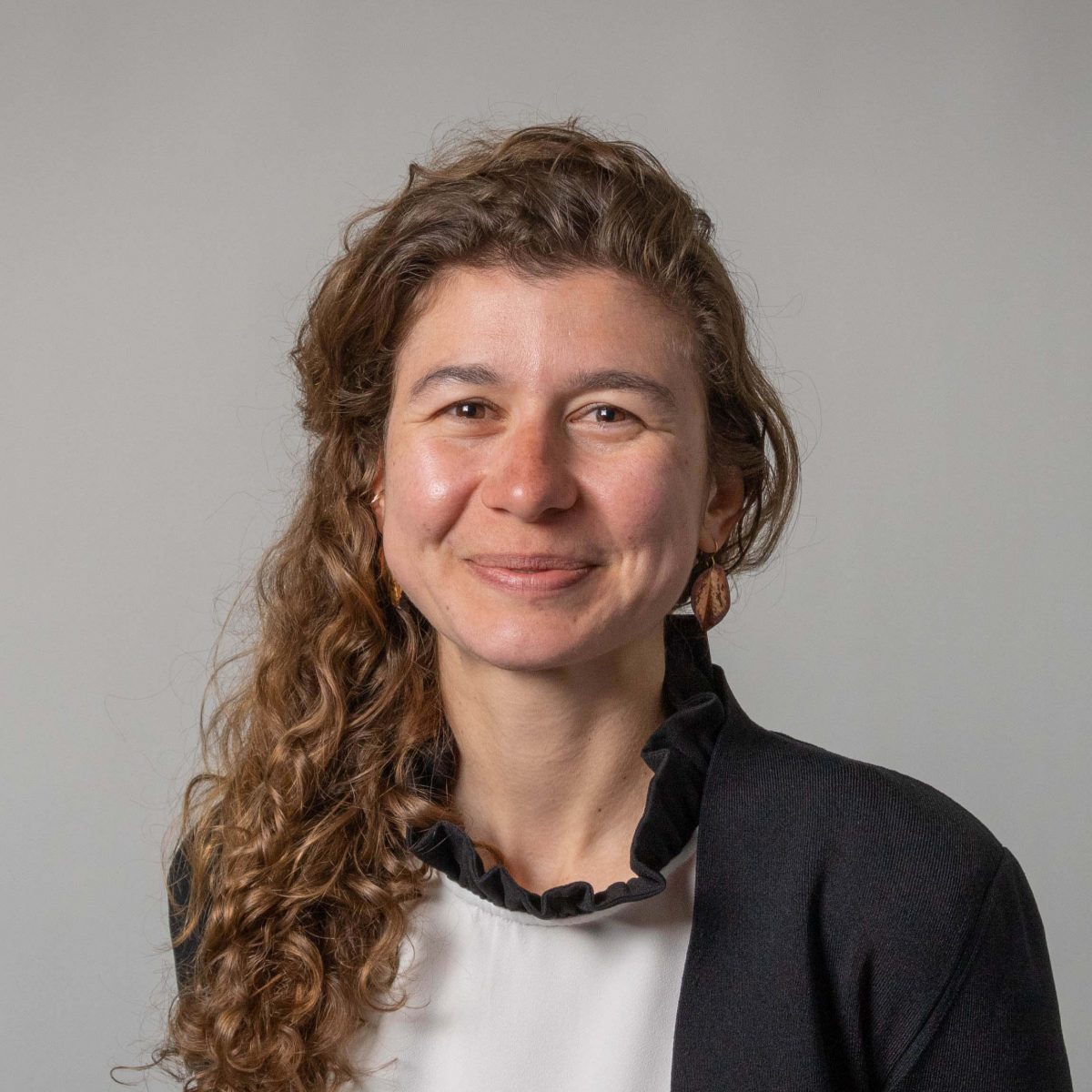
Assistant Professor, Chemical and Biomolecular Engineering
| desen.ozkan@uconn.edu | |
| Mailing Address | Department of Chemical & Biomolecular Engineering Engineering II, Room 204 191 Auditorium Road, Unit 3222 University of Connecticut Storrs, CT 06269-3222 |
| Google Scholar Link | |
Brief Bio
Desen Özkan is an Assistant Professor in UConn’s Chemical and Biomolecular Engineering Department and affiliate faculty member in the Neag School of Education Department of Curriculum and Instruction. Desen conducts research on sustainable energy systems, sociotechnical engineering education, and offshore wind energy, with specific attention to judgment and decision-making in complex sociotechnical energy systems. She is a co-founder of UConn’s Engineering Education Ph.D. program, teaching the core courses as well as courses in UConn’s engineering and human rights undergraduate initiative. She holds degrees in engineering education (Ph.D., Virginia Tech) and chemical and biological engineering (B.S., Tufts University).
- Sociotechnical engineering education
- Sustainable energy systems
- Offshore wind energy systems
- Sense of belonging for minoritized students in engineering education
Graduate Courses
- ENGR 5620 - Power and Politics of STEM Education, UConn Engineering Education (Spring)
- ENGR 5610 - Engineering Education Research Foundations, UConn Engineering Education (Fall)
Undergraduate Courses
- ENGR/HRTS 2300 – Engineering and Human Rights, UConn Engineering and Human Rights Initiative
- Özkan, D. S. (2025). Sociotechnical curricular approaches for a culture of engagement in engineering: students navigating power and equity. Engineering Studies, 1–26. https://doi.org/10.1080/19378629.2025.2556386
- Özkan, D. S., & McNair, L., D. (Accepted October 2024). Institutional Structures, Barriers, and Opportunities for Interdisciplinary Curriculum Change in Higher Education. Issues in Interdisciplinary Studies.
- Reeping, D., Hampton, C., & Özkan, D. S. (2025). Interrogating the Positionality of Large Language Models using the Q3 Framework. Studies in Engineering Education. 6(2), p. 1–23. https://doi.org/10.21061/see.174
- Özkan, D. S., Davis, K. A., Davis, J. C., Murzi, H., & Deters, J. (2024). Fostering Systems Thinking through Engineering Study Abroad Programs. European Journal of Engineering Education. 50(4), 829-854. https://doi.org/10.1080/03043797.2024.2434168
- Özkan, D. S. & Batrouny, N. (2024). Teaching engineering design with people, problems, and prototypes, International Journal of Engineering Education. 40(6).
- Özkan, D. S., & Rabb, N. (2024). Critical, motivated, hopeful: Empowering students through sociotechnical data science ethics education. Teaching Ethics. https://doi.org/10.5840/tej202478152
- Kleine, M. S., Zacharias, K., & Ozkan, D. S. Contextualization in engineering education: A scoping literature review. Journal of Engineering Education. https://doi.org/10.1002/jee.20570
- Patrick, A. Y., Wisnioski, M. H., McNair, L., Ozkan, D. S., Reeping, D., Martin, T. L., ... & Haines, C. E. (2023). In it for the Long Haul: The Groundwork of Interdisciplinary Culture Change in Engineering Education Reform. Engineering Studies, 1-24. https://doi.org/10.1080/19378629.2023.2243608
- Ozkan, D. S. & Andrews, C. (2022). Perspectives of Seven Minoritized Students in a First-Year Course Redesign toward Sociotechnical Engineering Education presented at 2022 ASEE Annual Conference & Exposition, Minneapolis, MN. https://par.nsf.gov/biblio/10417936
- Hampton, C., Reeping, D., & Ozkan, D. S. (2021). Positionality Statements in Engineering Education Research: A Look at the Hand that Guides the Methodological Tools. Studies in Engineering Education, 1(2), 126–141. http://doi.org/10.21061/see.13
- Davis, K., Deters, J., Ozkan, D. S., Davis, J., & Murzi, H. (2022). Exploring the Process and Outcomes of Leading a Study Abroad Program Using Real-Time Perspectives. Frontiers: The Interdisciplinary Journal of Study Abroad, 34(2), 351–381. https://doi.org/10.36366/frontiers.v34i2.654
- Ozkan, D. S., Davis, K. A., Davis, J. C.; James, M., Murzi, H., and Knight, D. B. (2020). Expectations and Experiences of Short-Term Study Abroad Leadership Teams. Journal of International Engineering Education: Vol. 2:1 in October 2020. https://digitalcommons.uri.edu/jiee/vol2/iss1/1
- Velez, A. L., Lewis, S. N., Thomas, R. C., & Ozkan, D. S. (2021). Learning Transdisciplinary Collaboration: Undergraduate Student Perceptions of Successes and Areas for Improvement in Transdisciplinary, Problem-Focused Honors Seminar Courses. Journal of Advanced Academics, https://doi.org/10.1177%2F1932202X211061121.
- Ozkan, D. S., McNair, L. D., & Bairaktarova, D. (2019). Teacher Learner, Learner Teacher: Parallels and Dissonance in an Interdisciplinary Design Education Minor. In IEEE Transactions on Education, Special Issue: Using Design Projects to Spur Cognitive Development of Students in Science and Engineering. http://doi.org/10.1109/TE.2019.2901781
Offshore Wind Energy Research:
- Dawson, A., Moynihan, B., & Ozkan, D. S. (2024, April). Op-Ed: Why America Needs Public Wind Power. Next City.https://nextcity.org/urbanist-news/why-america-needs-public-wind-power
- Dawson, A., Moynihan, B., & Ozkan, D. S. (2024, March). Public Power Observatory Report: Why We Need Public Wind Power. https://publicpowerobservatory.org/reports/
- Ozkan, D. S., & Fried, S., & Rosenberg, B. J. (2023, June), Worker Safety in Offshore Wind as a Door for Sociotechnical Engineering Education Paper presented at 2023 ASEE Annual Conference & Exposition, Baltimore, Maryland. 10.18260/1-2—42302
- Fried, S., Ozkan, D. S., Halldén, K., Moynihan, B., DeFrancisci, J., Kuchma, D., Bachant, C., Hines., E. (2022). Low-Carbon, Nature-Inclusive Concrete Gravity-Based Foundations for Offshore Wind Turbines. Tufts OSPRE Repository.